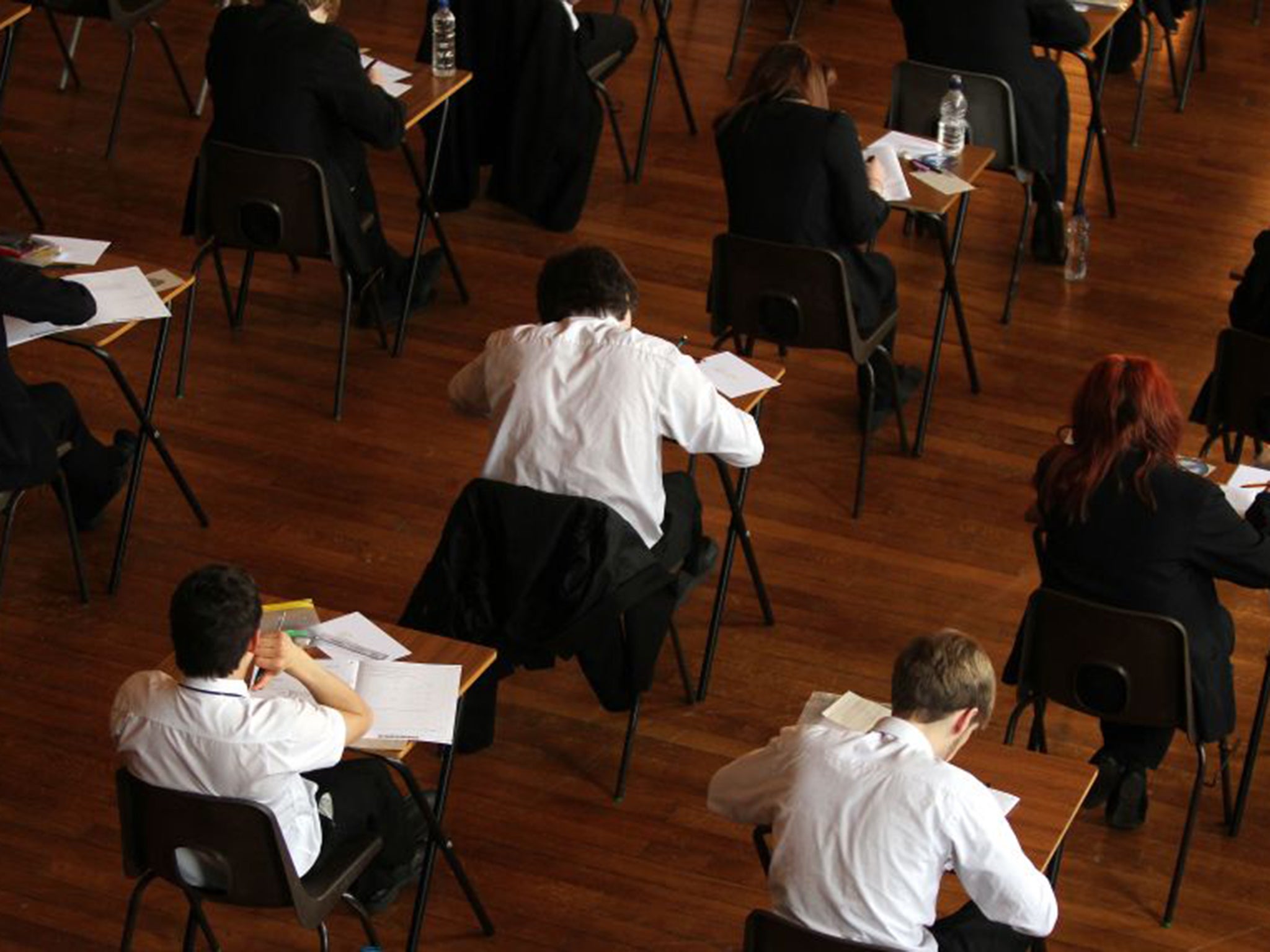Deaf children fall further behind classmates at A-level due to government cuts, analysis finds
Exclusive: ‘To be falling behind so drastically shows the system is completely failing deaf students’, says expert

Your support helps us to tell the story
From reproductive rights to climate change to Big Tech, The Independent is on the ground when the story is developing. Whether it's investigating the financials of Elon Musk's pro-Trump PAC or producing our latest documentary, 'The A Word', which shines a light on the American women fighting for reproductive rights, we know how important it is to parse out the facts from the messaging.
At such a critical moment in US history, we need reporters on the ground. Your donation allows us to keep sending journalists to speak to both sides of the story.
The Independent is trusted by Americans across the entire political spectrum. And unlike many other quality news outlets, we choose not to lock Americans out of our reporting and analysis with paywalls. We believe quality journalism should be available to everyone, paid for by those who can afford it.
Your support makes all the difference.Deaf children are falling further behind their hearing classmates at A-level amid government funding cuts, an analysis has found.
Almost six in 10 (58.8 per cent) deaf pupils in England failed to achieve more than one A-level by the age of 19 last year, the highest proportion since 2012, the latest figures show.
Students with no special educational needs (SEN) opened up the biggest attainment gap – 23.5 percentage points – over their deaf peers for six years, the analysis of government data has revealed.
Only 41.2 per cent of deaf pupils achieved two A-levels, or equivalent technical qualifications, by the age of 19 in 2017, compared with 64.7 per cent of their hearing classmates.
The National Deaf Children’s Society (NDCS), which carried out the analysis, has said the decline in attainment among deaf young people has been driven by “year on year cuts”.
And the attainment gap is likely to get worse this year, the charity said.
The warning comes after thousands of students picked up their A-level results and found out whether they attained their university places, and pupils will receive their GCSE grades on Thursday.
The attainment gap between deaf children and children with no SEN also widened at GCSE last year, with deaf children achieving more than a whole grade less at GCSE than their hearing peers.
Martin McLean, an education policy analyst at the NCDS, told The Independent: “Deafness isn’t a learning disability and all of the research shows that deaf children can achieve just as well as their hearing classmates, they just need the right support in place to do it.
“To be falling behind so drastically at A-level, even with an extra year to complete their A-levels, shows the system is completely failing deaf young people. The government should be shamed by these statistics.”
He added: “As councils up and down the country slash the education support they offer to deaf young people at an unprecedented rate, we are expecting the attainment gap, which is already unacceptably wide, to get worse.”
Earlier this year, the charity warned that millions of pounds of support for deaf children were being lost, with one in three councils making cuts, leaving services at breaking point.
Campaigners have warned that deaf-specialist teachers are being cut back every year, which has reduced the amount of time they spend with young people doing their A-levels.
Jess Reeves, who leads the NDCS’s campaign to reverse cuts to deaf children’s support, argues that deaf young people’s low level of attainment is partly a product of cutbacks.
She said: “Clearly deaf children aren’t getting the support they need – and even more cuts being planned are going to make a difficult situation even more bleak for many families.”
The NDCS is calling on education secretary Damian Hinds to take personal responsibility for sorting out the “crisis” in deaf young people’s education.
Mr McLean said: “Teachers of the deaf are now supporting far too many deaf children, their capacity to support young people over 16 is getting less and less and so far we have seen absolutely no action from the secretary of state for education to step in and sort this crisis out.
“We know there are huge pressures on education funding, but to do nothing is to be complicit in failing a whole generation of deaf young people,” he added.
Research last month found that deaf students are far less likely to go to one of the country’s most prestigious universities than their classmates.
Only 9 per cent of deaf young people leaving school attended a Russell Group university – the most selective in the UK – in 2015-16, compared to 17 per cent of all students, data showed.
A Department for Education spokesman said: “We want every child to have the support they need to unlock their potential, no matter what challenges they face.
“That is why we have fundamentally reformed support for children with special educational needs by making sure that families are at the heart of the process with education health and care plans that are tailored to individuals.
“The high needs budget is £6bn this year – the highest on record – and core school funding will rise to a record £43.5bn by 2020 – a 50 per cent real terms per pupil increase from 2000.”
Contracts worth £25m have also been launched to help children with disabilities, the department said.
Join our commenting forum
Join thought-provoking conversations, follow other Independent readers and see their replies
Comments